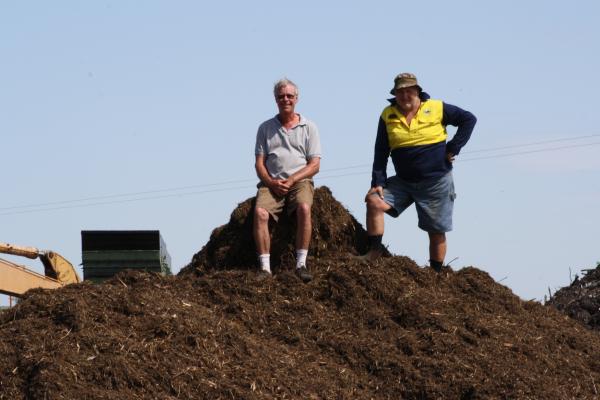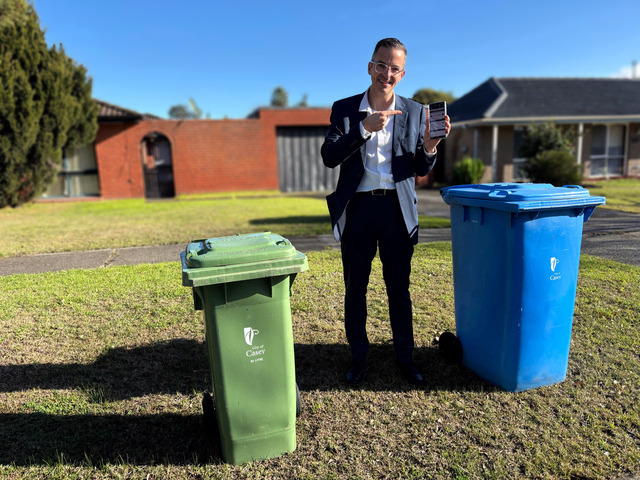A TOORADIN worm farm is set to make inroads into Australia’s multi-billion dollar green waste industry.
Back To Earth industrial recycling has joined with Woolworths in a pilot program that will see it take food waste from the supermarket giant.
If all goes well, the trial could turn into a large-scale contract to deal with the tonnes of green waste that Woolworths produces each day.
Business partners Graham Swann and Ray Jans have been working towards snaring major corporate contracts since establishing a trial worm farm in Mornington in 1999.
Since moving to the South Gippsland Highway site they have recycled waste for Simplot, which manufactures Lean Cuisine and Papa Giuseppe meals at its Pakenham plant, as well as Barastoc feed mills, Patties Pies and Inghams chicken farms.
More than 50,000 tonnes of waste has so far been converted to valuable fertiliser.
Back To Earth, which employs six people, is hoping government agencies will follow the lead of private enterprise and start properly recycling food waste.
“It’s taken a little longer than we wanted, however, we reckon if we can get two governmental bodies to capitulate then it will be accepted and our bloody licences will be worth money,” Ray said.
“We just need one card to fall and we will have a floodgate situation … overseas in America and Europe they have been doing it for 50 years.”
The food waste is converted into nutrient rich worm poo, or castings, which is then mixed with a compost blend.
This is then sold to farmers as a soil renovator and fertiliser.
“We’ve proven our concept, we’ve sold enough of our product and we are now in the business of looking at licensing agreements with farmers,” Graham said.
The on-farm concept would see farmers paid to accept waste onto their property, where they would treat it with equipment and worm beds provided by Back To Earth.
Once they have the nutrient rich castings they can sell it or spread it over their own paddocks.
Having farmers treating the green waste would solve a couple of issues for the company.
The sheer amount of organic material they hope to deal with couldn’t be processed at the current site, so having worm beds on farms would allow them to take as much waste as they want.
Occasional odour issues with neighbours could also disappear if the worm beds were located in the middle of a 400-acre farm, rather than on the suburban fringe.
Worm farmers strike pay dirt

Digital Editions
-

Battin critical of government response to alleged childcare sex offender
This article includes details of alleged child sexual offences that could be distressing to readers. Berwick MP and opposition leader Brad Battin has been critical…





